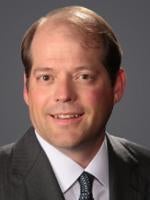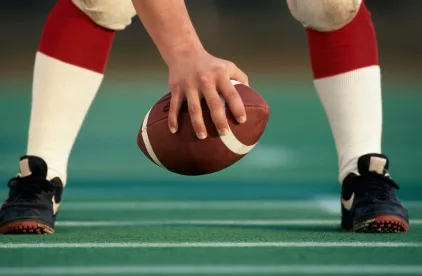In an official memorandum entitled “General Counsel’s Report on the Statutory Rights of University Faculty and Students in the Unfair Labor Practice Context,” the National Labor Relations Board (NLRB) General Counsel Richard F. Griffin, Jr., explains several NLRB enforcement positions on National Labor Relations Act (NLRA) employee status in the university setting. Most dramatically, the memorandum, which was issued on January 31, 2017 to all Regional Directors, Officers-in-Charge, and Resident Officers, declares National Collegiate Athletic Association (NCAA) football players are actually employees. “We conclude that scholarship football players in Division I FBS private sector colleges and universities are employees under the NLRA, with the rights and protections of that Act.”
Wait a minute . . . didn’t the Board reach an opposite conclusion in the Northwestern football team case? The memorandum interprets the 2015 Northwestern University Board decision to be limited to merely declining to exercise jurisdiction over a representation petition involving a single team’s players but leaving open the issue of whether the players were employees under the Act. Time will tell whether the General Counsel has now thrown a touchdown or an interception.
What Does This Mean For College Sports?
At the least, we now know that the NLRB will find that most Division 1 FBS Football players are employees under the Act. The memorandum gives an example of the practical impact of its conclusion, “for example, a football player who has been kicked off the team and lost his scholarship because he discussed improving concussion protocols with his teammates in violation of an unlawful team rule would be entitled to the protections of the Act.” Left unanswered are questions about non-Division 1 FBS schools and how other scholarship sports program participants will be viewed. The memorandum acknowledges that the profit derived from a Division 1 FBS football program is an important factor influencing employee status. The same reasoning may lead to a very different conclusion about other non-profit producing sports programs and even a different conclusion for non-Division 1 FBS football programs.
A Guiding Light for Religious Institutions
The memorandum also addresses whether certain faculty members at religious institutions are exempt from the NLRA. The General Counsel explains a two-pronged test that the Board established in a 2014 decision: (1) Does the university “hold[] itself out to students, faculty, and the community as providing a religious educational environment”? (2) Does the university hold the individual faculty member out “as performing a specific role in creating and maintaining that environment”? If both prongs are met, the NLRB will decline jurisdiction. The memorandum, quoting a 2002 D.C. Circuit case, states that the Board will “err on the side of being over inclusive and not excluding universities because they are not ‘religious enough’.”
Student Workers Have Rights Too
The memorandum also explains that the Board’s 2016 decision in Columbia University to extend the Act’s coverage to graduate and undergraduate student assistants actually means that all paid student workers, both academic and non-academic, are employees under the Act, and the NLRB will enforce the extension of Act rights to all paid student workers. All universities and colleges should expect the Board to analyze unfair labor practice charges involving all student workers, whether academic or non-academic (such as cafeteria workers, lifeguards, campus tour guides, and administrative assistants in department offices such as those in financial aid or alumni affairs) accordingly.






 />i
/>i
